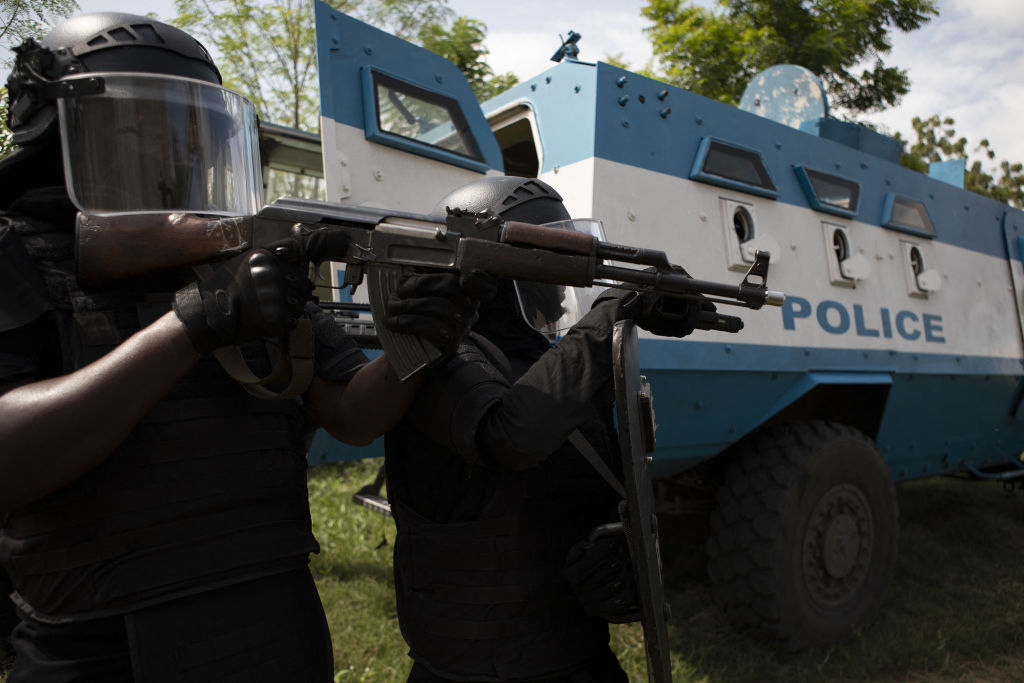ADF STAFF
Togo’s northern Savanes province remains under a state of emergency as the country contends with repeated attacks by extremists based in neighboring Burkina Faso.
Since November 2021, extremists have killed and injured dozens of Savanes residents and Soldiers. One of the worst attacks occurred in May 2022 when dozens of armed men on motorcycles killed eight Soldiers during an attack at a military outpost in Kpinkankandi.
After that, more attacks came along Togo’s 131-kilometer border with Burkina Faso, amounting to nearly one a month through November.
In December 2022, Togolese President Faure Gnassingbé said he would personally oversee the armed forces amid continuing instability. During a New Year’s Eve address, he pledged steely resolve in facing the threat.
“We are doing everything possible to defend the attacked homeland,” he said. “And in this fight, I am convinced that, with God’s help, we will be victorious. We will overcome the forces of evil. These forces will be defeated at the gates ofTogo.”
Togo has joined its neighbors along the northern Gulf of Guinea in defending against extremist assaults. Over the past year, Benin, Côte d’Ivoire and Ghana have contended with attempts by extremists to push south to the coast to secure supply lines to their bases in the Sahel.
Even as it defends its territory from extremists, Togo hosts more than more than 4,000 people displaced by attacks in neighboring countries. It also is dealing with thousands of its own citizens fleeing their communities after extremist attacks.
As it seeks to maintain security in Savanes, Togo’s government expanded its military presence in the region. It has deployed Soldiers to the region under the Koundjoare operation, first launched in 2018, which aims to prevent infiltration by violent extremists.
In September, it extended an early state of emergency until March 2023. Under that order, security officials can prohibit movement, ban gathering on public roads and arrest anyone they consider suspicious.
Experts have different theories regarding what is motivating the attacks.
According to researcher Dr. Folahanmi Aina, extremists’ attacks in northern Togo also are designed to gain notoriety and expand their ranks.
“By establishing a presence in Togo, extremist groups stand to gain by recruiting foot soldiers,” Aina wrote for the Conversation after the May 2022 attack. “Being in northern Togo also puts them close to Burkina Faso, enabling cross-border collaborations and attacks with other violent extremists operating in the area.”
Francis Kpatindé, a diplomat and professor at Science Po Paris, sees the attacks as retribution against Savanes citizens who have helped security forces disrupt other extremist operations. In some cases, attackers have gone house to house targeting individuals.
“Many attacks have been thwarted,” Kpatindé told France’s TV5 Monde. “The other attacks have had publicity because of the consequent human losses. In fact, for every successful attack, there are several that are foiled.”
Jeannine Ella Abatan, a researcher at the Institute for Security Studies in Senegal said that Togo must maintain the support and confidence of local residents while it fights extremists.
“The authorities must continue to strengthen this confidence by showing all the usefulness of the state to these populations by being present in their daily lives, but also by protecting them in an increasingly difficult situation,” Abatan told TV5 Monde.
That might prove tough in an area with high rates of poverty and a history of governmental neglect, experts say.
“Togo has the conditions for extremism to take root,” Aina wrote.
Nous mettons tout en œuvre pour défendre la patrie agressée. Et dans ce combat, je suis convaincu qu’avec l’aide de Dieu, nous vaincrons. Nous aurons raison des forces du mal. Ces forces seront défaites aux portes du Togo

